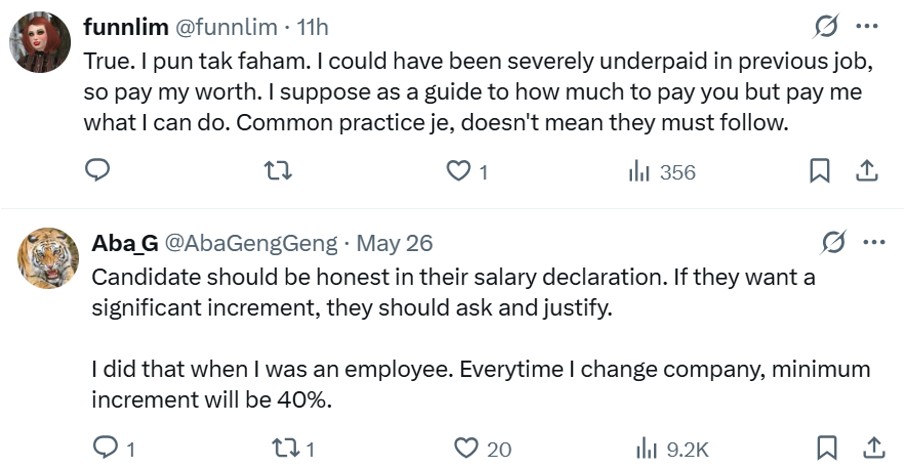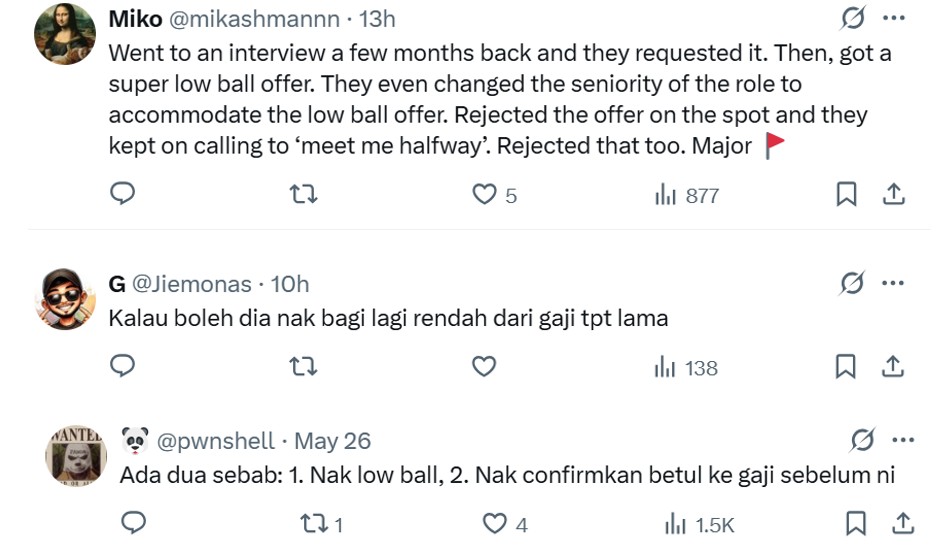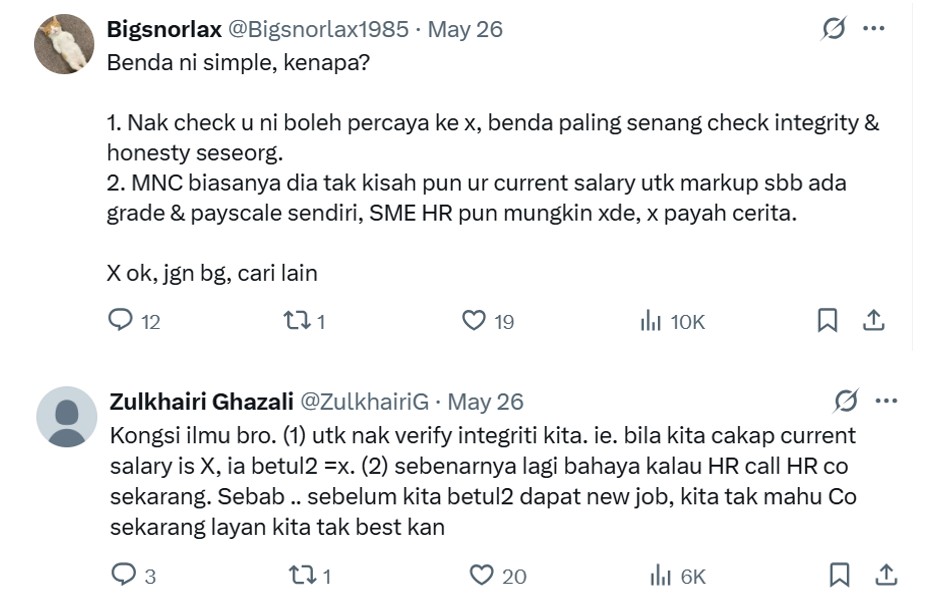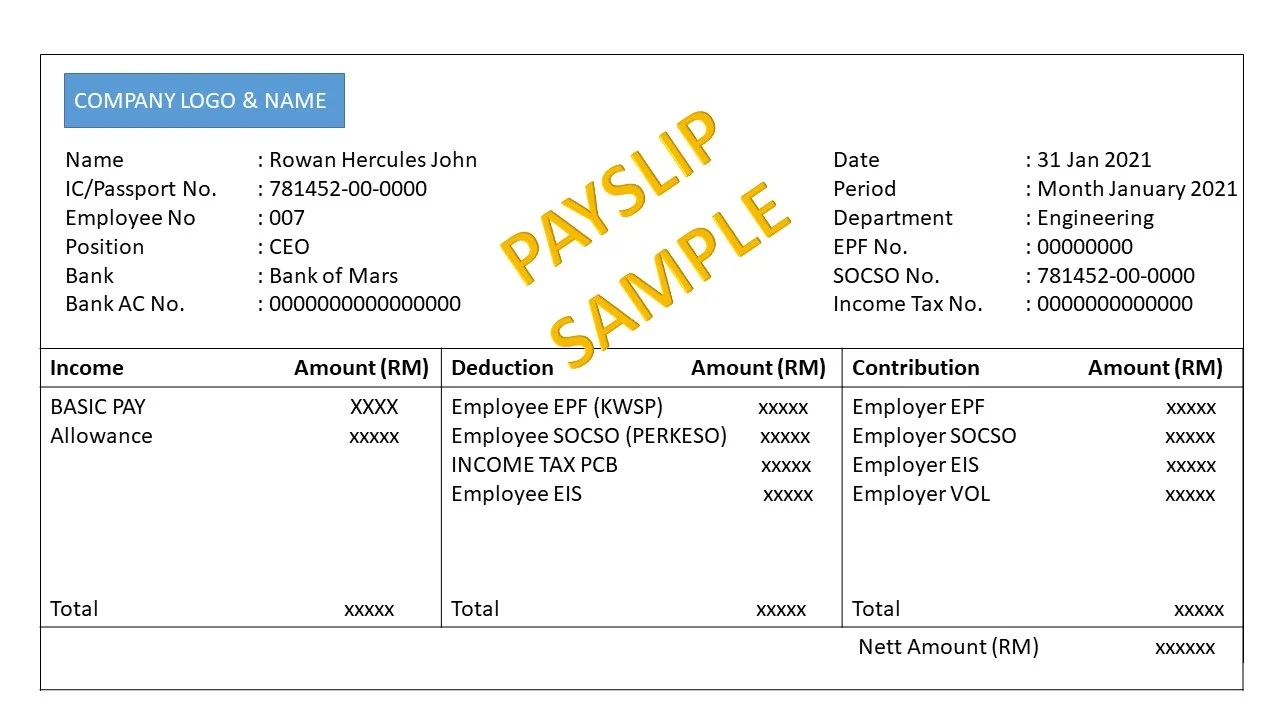It was in the mid-2000s and Hernan Crespo was playing his trade in the English Premier League with Chelsea.
But the Argentine ace found his playing time limited due to a plethora of reasons, spending much time on the bench.
One fine day post-training session, the forward cleared his gym bag and inadvertently threw out his pay slip.
Lo and behold, this precious piece of paper landed in the hands of the thrash-digging tabloid press which gleefully revealed how much the Stamford Bridge star was earning for essentially doing not very much at all.
Could the media print such private info? Well, if Crespo had thrown it away, that rubbish was now in the public domain.
This seems to be the message being put forward on X by Abang Panda (@zulazri03) who asked why human resource departments often ask for payslips when one is applying for a new job.
Seriously aku tak faham. Kenapa common practise HR nowadays beria nak mintak payslip? You hire for my skill and contribution i will made to the company.
Why bother nak mintak. You can just call HR in my previous company to confirm the salary. Payslip is confidential kot?😅 pic.twitter.com/XjOSzSKRSp
— Abang Panda 🐼 (@zulazri03) May 25, 2025
An offer was made for the skill sets the applicant brings to the table. After all, a simple phone call to the previous employer would confirm those pertinent details.
The poster argued that a payslip was confidential – and once you relinquish control of it like Crespo did – that piece of information can be misused and abused.
He was responding to separate posts on this issue albeit in different circumstances. In one, a potential applicant was busted for trying to fake the remuneration on his payslip but forgot to adjust the EPF contribution!
In another, it was argued that HR departments, recruiters and head-hunters use previous payslips as a barometer in determining compensation packages. It was argued that this outmoded practice is illegal and employees should NOT share this sensitive information.
One commenter echoed a similar sentiment, wondering why such need arises when a potential employer would have an allocated budget for the vacant position anyway. Just because it is normal practice doesn’t make it right.

Another pointed out that payslips were asked not just by HR departments but also by banks and even salespersons when buying a car or property.

Quite a few argued that any potential offer should be based on merit, not previous wage. One further stated that the applicant should be upfront about expected salaries and justify any significant leap.

A few cautioned that such a request was a mere preclude to the company trying to low-ball potential employees.

Some argued that the reason for this request is simple – to check on the integrity and honesty of a potential employee.

One netizen seemed to hit the nail on the head by pointing to the economic reality that allows for such a practice. It was all a question of demand and supply. Plenty of fishes in the sea seems to be the logic here.

“How to beat the system? Cooperate and just reveal a salary slip. I still got 30% upward increment,” recalled the lucky commenter. “After 2-3 months, another 30% jump. Just repeat the process.”
In Malaysia, payslips are considered personal data, under the Personal Data Protection Act (PDPA) 2010. Potential employees have the right to refuse sharing them unless it’s legally required.
Unfortunately, the practice persists due to economic realities.
Perhaps, stricter enforcement, change in legislation or even just an awareness campaign is required to stop this from being standard operating procedure when hiring.
Over to you Human Resource Minister Steven Sim Chee Keong. – May 28, 2025
Main image credit: activpayroll









